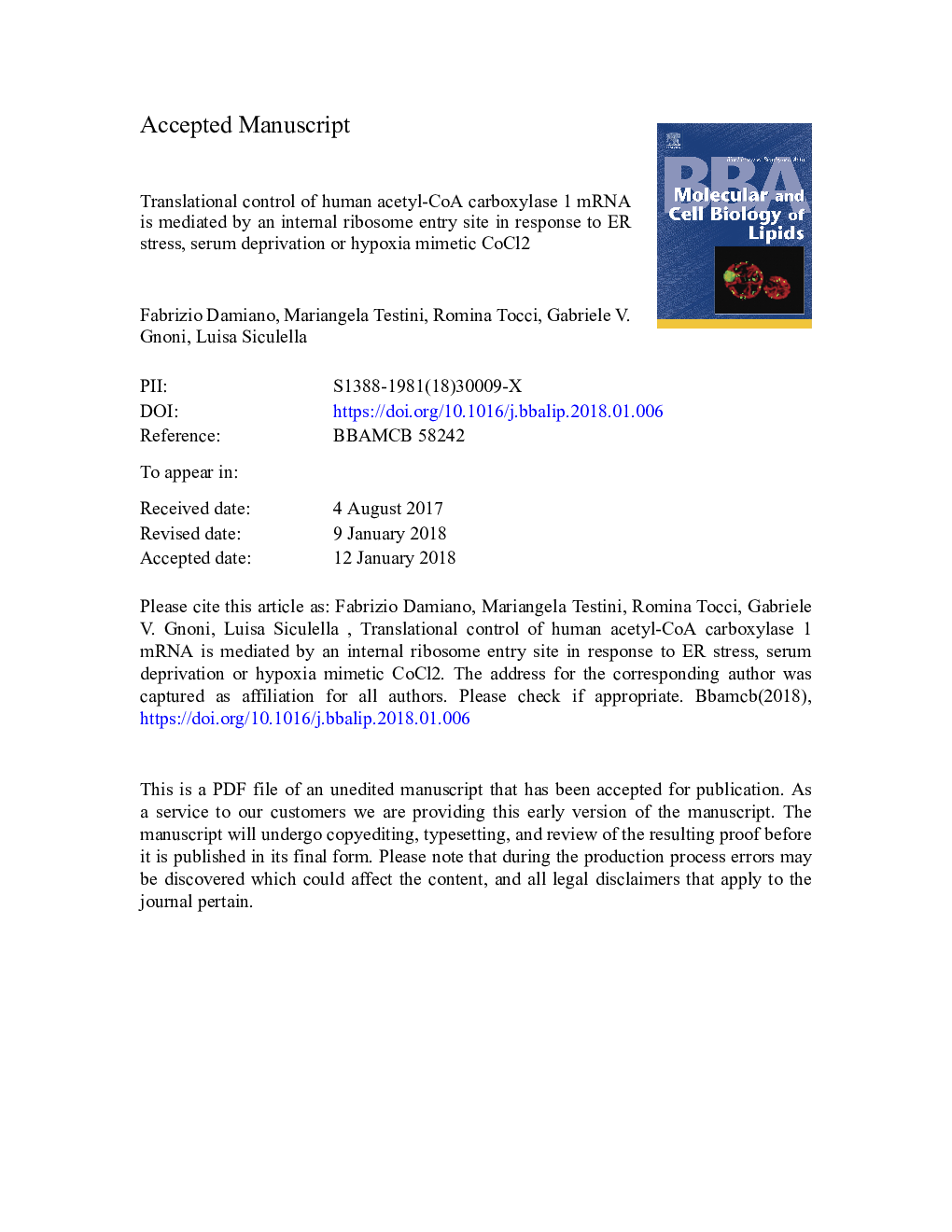| Article ID | Journal | Published Year | Pages | File Type |
|---|---|---|---|---|
| 8301369 | Biochimica et Biophysica Acta (BBA) - Molecular and Cell Biology of Lipids | 2018 | 32 Pages |
Abstract
Acetyl-CoA carboxylase 1 (ACC1) is a cytosolic enzyme catalyzing the rate limiting step in de novo fatty acid biosynthesis. There is mounting evidence showing that ACC1 is susceptible to dysregulation and that it is over-expressed in liver diseases associated with lipid accumulation and in several cancers. In the present study, ACC1 regulation at the translational level is reported. Using several experimental approaches, the presence of an internal ribosome entry site (IRES) has been established in the 5â² untranslated region (5â² UTR) of the ACC1 mRNA. Transfection experiments with the ACC1 5â² UTR inserted in a dicistronic reporter vector show a remarkable increase in the downstream cistron translation, through a cap-independent mechanism. The endoplasmic reticulum (ER) stress condition and the related unfolded protein response (UPR), triggered by treatment with thapsigargin and tunicamycin, cause an increase of the cap-independent translation of ACC1 mRNA in HepG2 cells, despite the overall reduction in global protein synthesis. Other stress conditions, such as serum starvation and incubation with hypoxia mimetic agent CoCl2, up-regulate ACC1 expression in HepG2 cells at the translational level. Overall, these findings indicate that the presence of an IRES in the ACC1 5â² UTR allows ACC1 mRNA translation in conditions that are inhibitory to cap-dependent translation. A potential involvement of the cap-independent translation of ACC1 in several pathologies, such as obesity and cancer, has been discussed.
Related Topics
Life Sciences
Biochemistry, Genetics and Molecular Biology
Biochemistry
Authors
Fabrizio Damiano, Mariangela Testini, Romina Tocci, Gabriele V. Gnoni, Luisa Siculella,
